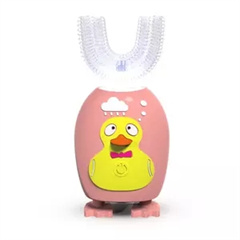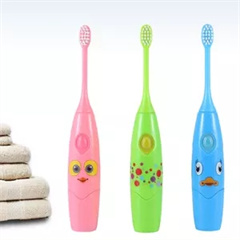Choosing the right bristle type for your toothbrush is essential to ensure effective and comfortable cleaning. Bristle types can vary in terms of texture, firmness, and design. Here are some considerations to help you find the bristle type that works best for you:
- Soft Bristles: Soft bristles are the most commonly recommended by dentists. They effectively clean your teeth and gums without being too abrasive. Soft bristles are gentle on the enamel and are generally suitable for most people, including those with sensitive teeth or gums.
- Extra Soft Bristles: If you have very sensitive teeth and gums or if you’ve undergone certain dental procedures, such as gum surgery, extra soft bristles might be even gentler and more comfortable for you.
- Medium Bristles: Medium bristles can provide a bit more scrubbing power, but they are not suitable for everyone. They might work for people who have healthy gums and teeth and prefer a slightly firmer brushing sensation. However, they can be too abrasive for those with sensitive gums or enamel.
- Hard Bristles: Hard bristles are generally not recommended by dentists. They can be overly abrasive and might lead to enamel erosion and gum damage. It’s best to avoid hard bristles, especially if you have any oral health issues.
- Bristle Texture: Bristles can come in various textures, such as flat, dome-shaped, or rippled. The texture might affect how well the toothbrush cleans certain areas of your teeth. Experiment with different textures to find the one that feels most effective and comfortable for you.
- Individual Preference: Personal preference plays a significant role in determining the best bristle type for you. Some people might prefer the sensation of softer bristles, while others might feel that medium bristles provide a better clean. Try different bristle types to see which one you’re most comfortable with.
- Dental Health Needs: Consider your specific oral health needs. If you have gum disease, sensitive gums, or any dental work like braces or implants, opt for a toothbrush with soft or extra soft bristles to prevent irritation.
- Consult Your Dentist: If you’re unsure about which bristle type to choose, consult your dentist or dental hygienist. They can provide personalized recommendations based on your oral health condition and any specific concerns you might have.
- Replace Your Toothbrush: Regardless of the bristle type you choose, make sure to replace your toothbrush every 3 to 4 months or sooner if the bristles are frayed. Worn bristles are less effective at cleaning teeth.
In the end, the most important factor is to use a toothbrush with bristles that feel comfortable to you and that effectively clean your teeth without causing irritation or damage. Your oral health is unique, so finding the right bristle type might require a bit of experimentation and guidance from dental professionals.








